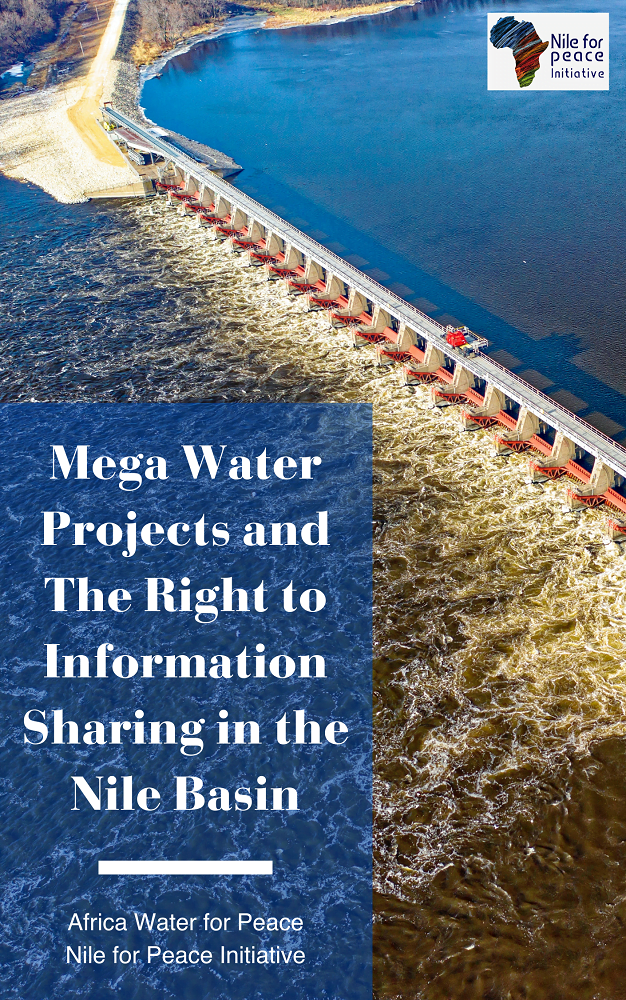Mega Water Projects and The Right to Information Sharing in the Nile Basin

Introduction:
In the context of its interest in strengthening peace and means of cooperation among the Nile Basin countries, specifically in light of the escalating crisis on the Grand Ethiopian Renaissance Dam (GERD), the Nile for Peace initiative presents a study entitled “Mega Water Projects and The Right to Information Sharing in the Nile Basin”. The study aims at highlighting the importance of including the principle of the right to exchange information and data within international and regional agreements focusing on issues of shared water sharing, by identifying this principle in previous agreements and treaties, in addition to mentioning the positive aspects of strengthening this principle and its role in achieving regional cooperation between countries. In the third part, the study touches upon some of the potential risks and damages in the absence of the principle of transparency in the exchange of information with application on the current GERD crisis, and concludes with a perception of the promotion of the principle of exchanging information and data among countries with the GERD crisis.
The principle of information and data exchange has become clearly entrenched in the majority of international water-related agreements between the riparian countries, which could result in the establishment of many relations on the basis of common interest and consequently the consolidation of relations between them. There is no doubt that the right to information is fundamental to the protection of international water and other rights; It guarantees integrity and transparency in dealings between countries in a way that guarantees respect for the rights of all.
The right to access data and information about water is of particular importance in international transboundary waters, basins and aquifers shared by two or more countries, given the possibility of conflict between them in the absence of information to ensure that they protect their interests.
However, accessing water resources relevant data becomes more complicated in international transboundary basins, although countries usually sign international agreements that allow data and information sharing and enhance the principle of transparency and integrity. But in reality, things are not conducted in accordance with the principles and prior agreements. Because transboundary waters pose significant challenges to management and collective action, states can gain the advantages of single-use while sharing costs in terms of reduced quantity or degraded quality, and these challenges have sometimes trigerred conflicts to varying degrees between some states.
Undoubtedly, the principle of circulating information and data about water will deepen the principle of trust among the riparian countries, because denying other parties’ access to information may cause damage their interests.
